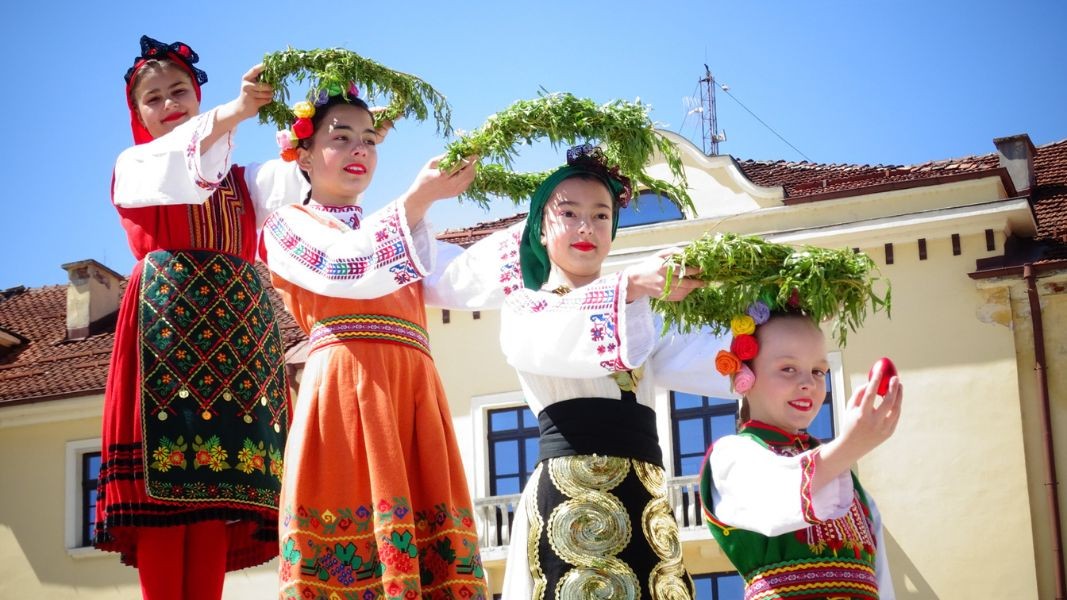Eight days before Easter, we celebrate Lazarus Saturday (St. Lazarus Day). It is the first of the three major Christian feasts associated with the miracle of the Resurrection and is followed by Palm Sunday and Easter. St. Lazarus Day is celebrated each year on a different date, but always on the Saturday preceding the Holy Week. Lazarus Saturday or Lazarovden in Bulgarian bears the name of Lazarus, who was brought back from the dead through the miracle of resurrection and Christ clearly manifested Himself as Lord of Life and Death.
The most typical Bulgarian custom for this day is called ''lazaruvane''. From early morning young unmarried girls called ‘’Lazarki’’ go from home to home, dancing and singing, wishing for love, good health and fertility. In the past there was a belief that a girl who had not participated in the custom would not get married, so it was obligatory for every teenage girl in a village to take part in the rituals. On this day, it was customary for young men to make a marriage proposal to their beloved.

Even today, Lazarus Saturday brings a spring mood and is eagerly awaited by participants, as well as residents and guests of villages and towns.
You can learn more details about the colourful Bulgarian feast in Radio Bulgaria’s publications:
Photos: BGNESOn 22 November, the Association of Bulgarian Folk Ensembles Abroad (ABFEA) will present its project, 'Online Catalogue of Bulgarian Horo and Other Dances', in three European cities: Lyon, Munich and Copenhagen. 'Our goal is to preserve Bulgarian..
‘The Bulgarian horo is a kind of magic — an enchanted circle that pulses with the unique energy of our spirit, our traditions and our identity,’ says journalist Milena Milotinova, who recently presented her new documentary The Magic of the Bulgarian..
The Eastern Rhodopes come to life in the heart of Sofia – with authentic flavoуrs, music and craftsmanship . Residents of the Bulgaria capital have a chance to immerse themselves in the atmosphere of Momchilgrad Municipality and its cultural and natural..

+359 2 9336 661
